Thinking about getting a custom T-shirt printed but unsure which method will keep your design looking fresh for years? The truth is, not all printing techniques are created equal. Some prints fade after a some washes, while others can last as long as the T-shirt itself.
With our wealth of experience in the T-shirt printing industry for more than 10 years, we are able to share the best tips for T-shirt printing in Singapore. In this guide, we’ll explore the most popular T-shirt printing methods and reveal which ones offer the best durability– so you can make the right choice for your needs.
Factors That Affect Print Durability
The lifespan of a printed design depends on several factors, including:
✔️ Printing Method – Some techniques, like embroidery and sublimation, last longer than others.
✔️ ️Fabric type – Cotton, polyester, and blends absorb ink differently, affecting print longevity.
✔️ Washing & care – Proper washing techniques can extend the life of your printed apparel.
✔️ Quality of prints – High quality printing materials makes a difference in durability.
Now, let’s break down the most common T-shirt printing methods and rank them based on durability.
The Most Durable T-Shirt Printing Methods
1. Embroidery & Sublimation: The Durable Duo
These two techniques top the list when it comes to durability.
Embroidery – Uses high-quality threads stitched directly onto the fabric instead of inks. The result is a textured, professional looking logo design that often outlasts the T-shirt or apparel itself.
👍Best for: Corporate Polos, Work Uniforms, and long-term wear.
❌Not ideal for: Thin material such as polyester as embroidery might feel heavy.
Sublimation Printing – Infuses ink directly into the polyester fabric, creating a print that won’t crack, fade, or peel over time.
It’s ideal for sports jerseys and very popular among custom soccer jersey printing.
👍Best for: Corporate Jerseys, Badminton T-shirt, Soccer Jersey, E-sports Jersey, and long term wear.
❌Not ideal for: Natural fiber fabrics such as cotton, wool or delicate material. Sublimation printing can only be achieve on Polyester (Dri Fit) material.
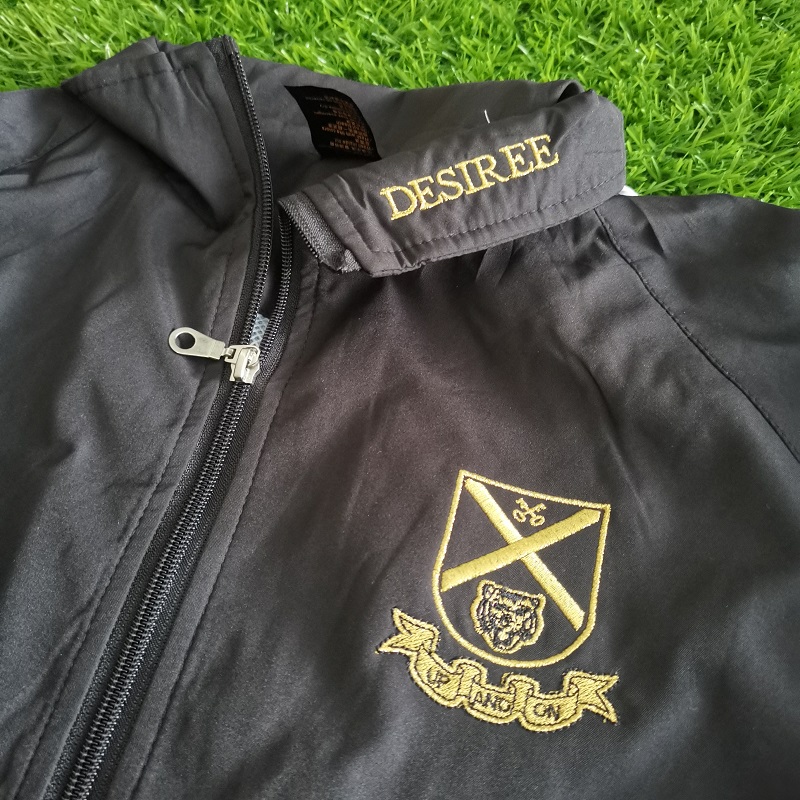
Example of embroidery
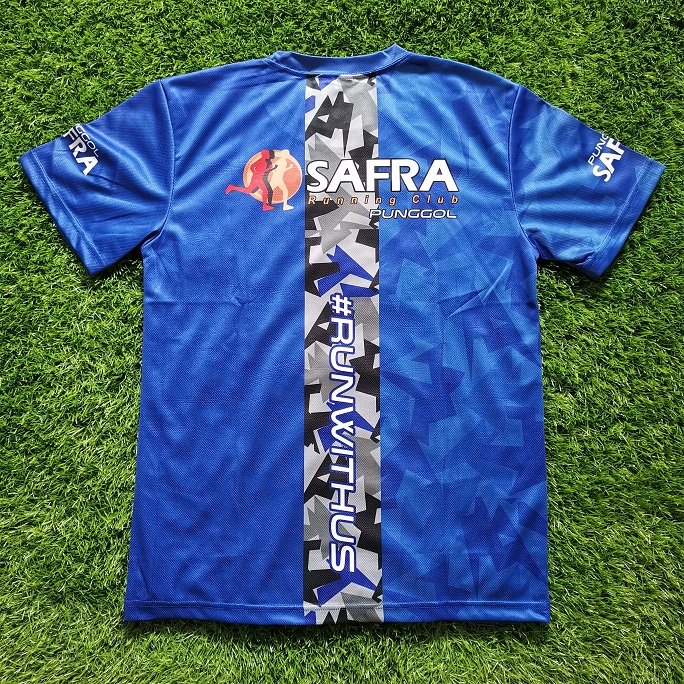
Example of Sublimation Printing
2. Silkscreen Printing : The Reliable Classic
Silkscreen printing is one of the most popular methods for bulk orders. It is a process of ink pushing through a mesh and onto the garment. It uses a layers of ink, making it highly resistant to fading and cracking. With proper care, silkscreen printing designs can last thousands of washes.
👍Best for: Cotton T-Shirts, Dri Fit T-shirts, Promotional merchandise, bulk orders.
❌Not ideal for: Stretchy fabrics like spandex or water resistant material.
At TJG Print, we specialises in silkscreen printing and most of our printed orders are achieved by silkscreen printing. The main reason being it is effectively durable, affordable and quick to process.
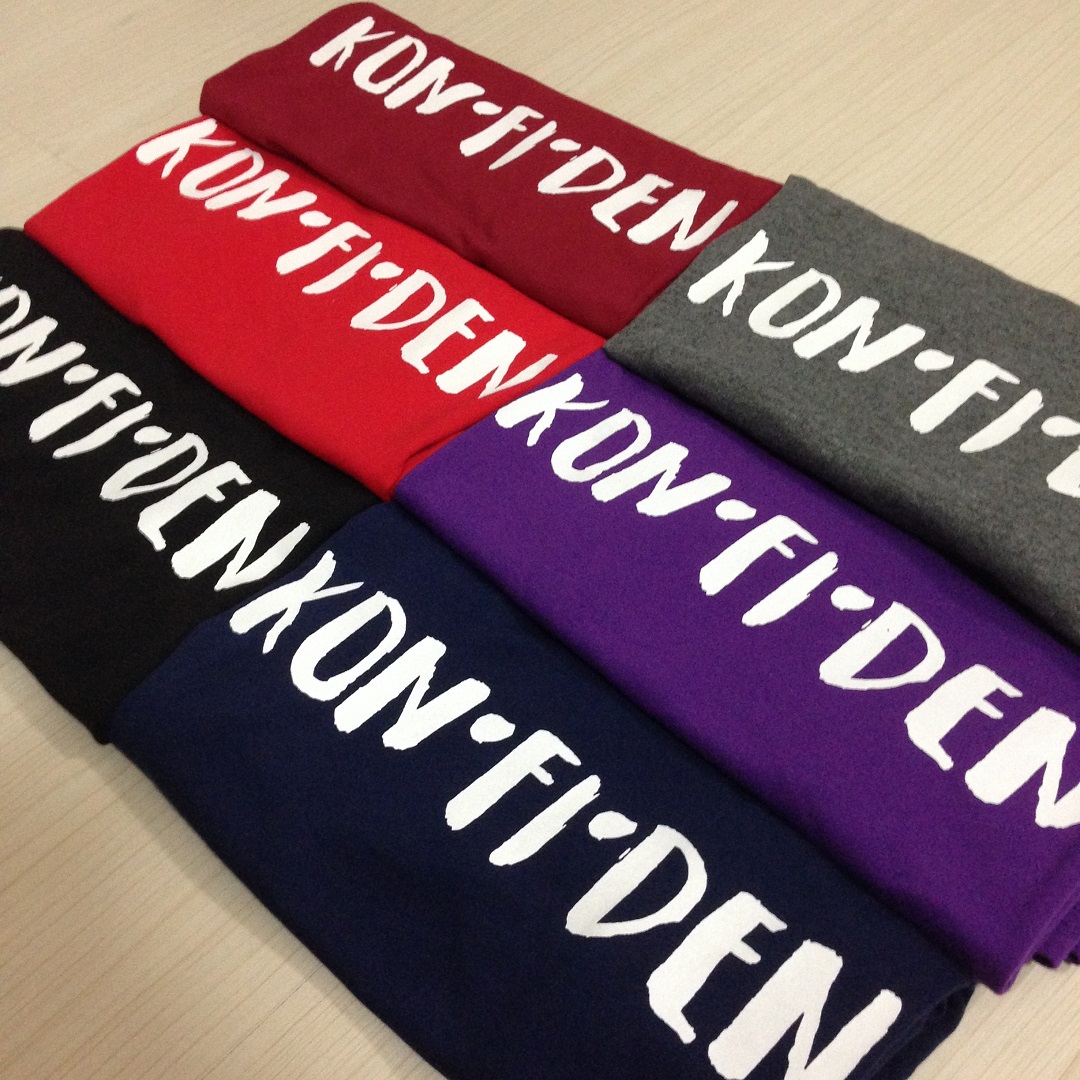
Example of Silkscreen Printing
3. Direct-To-Film (DTF) Printing: Durability with Versatility
DTF printing is a rising star in the T-shirt printing industry. It is one of the latest printing technology that TJG Print brings them in too. The process involves printing a design on a special film, then heat-pressing it onto a fabric. While it sounds like digital heat transfer, the in-between process is quicker and this newer technology have greater durability.
| Pros | Cons |
| Works on various materials, including cotton, polyester, and blends. | Can feel less breathable compared to other methods. |
| Maintains color vibrancy even after multiple washes. | Less durable than Silkscreen printing. |
| More durable than traditional heat transfer methods. | Requires high resolution image file |
👍Best for: Custom apparel with intricate designs or gradient effects.
❌Not ideal for: Extended long term usage
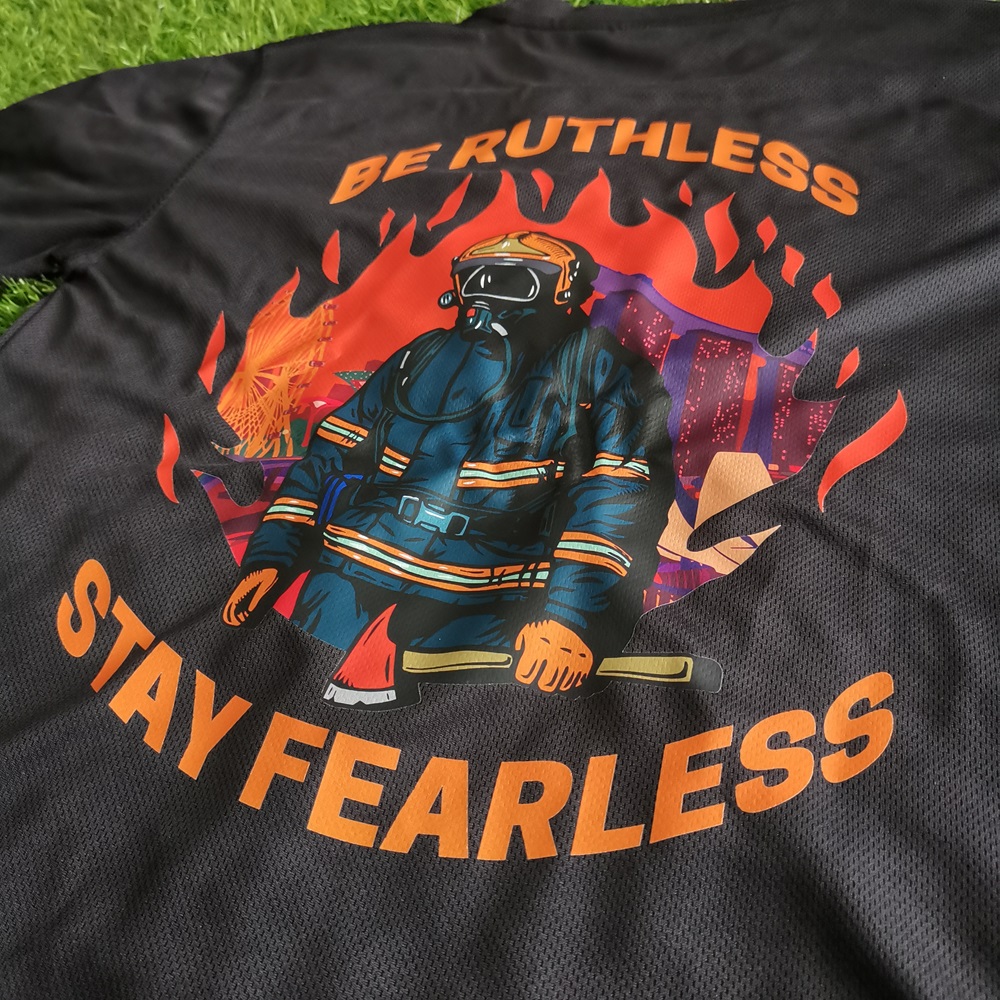
Example of DTF Print for SCDF
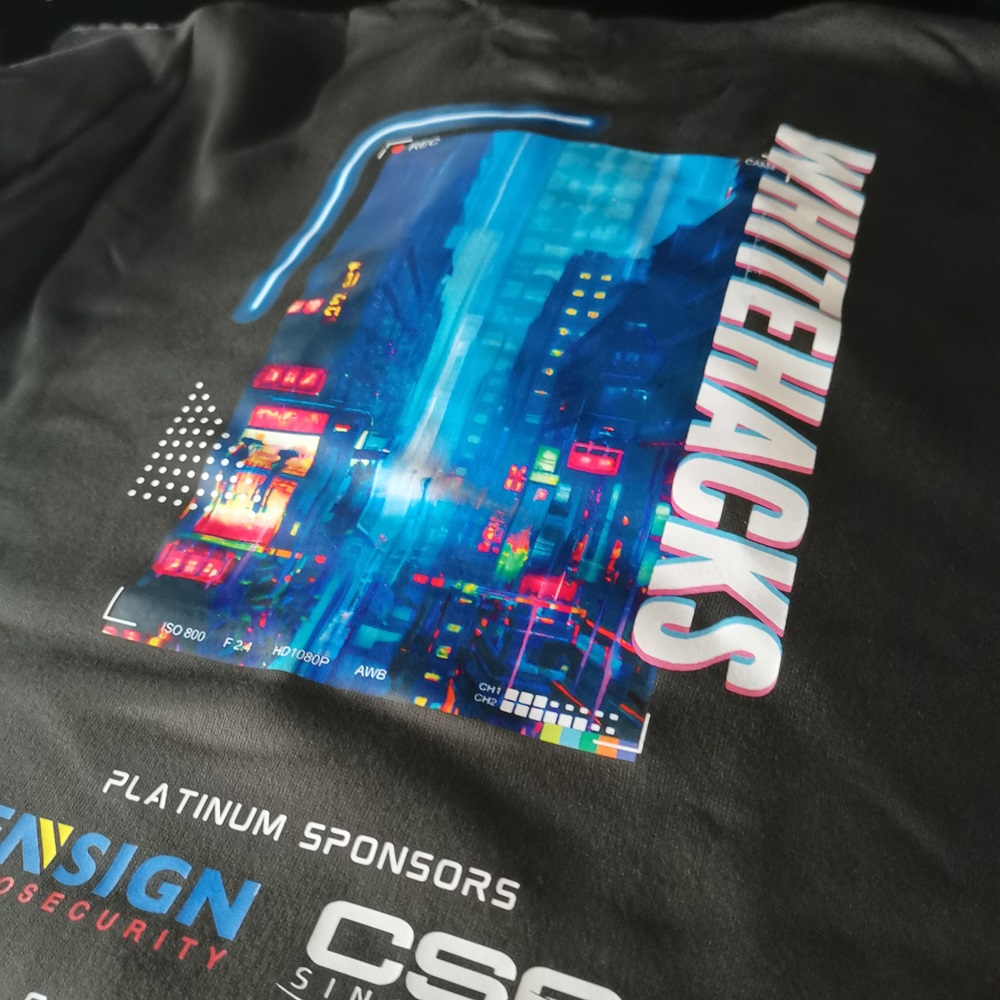
Example of DTF Print (Gradient effect and multi-colours)
Vinyl & Digital Heat Transfer: Vibrant and Colourful Prints
Vinyl and digital heat transfer printing involve applying a film design onto a T-shirt using heat and pressure. While these methods work well for custom name and number printing (like sports jerseys), they tend to last about 50 washes before cracking or peeling. If proper care and wash tips are adhere to, in fact the lifespan of these printing can last much longer.
👍Best for: No minimum order quantity order to small quantity orders, Name and Number printing or for one-time events
❌Not ideal for: Bulk orders or long term wear.
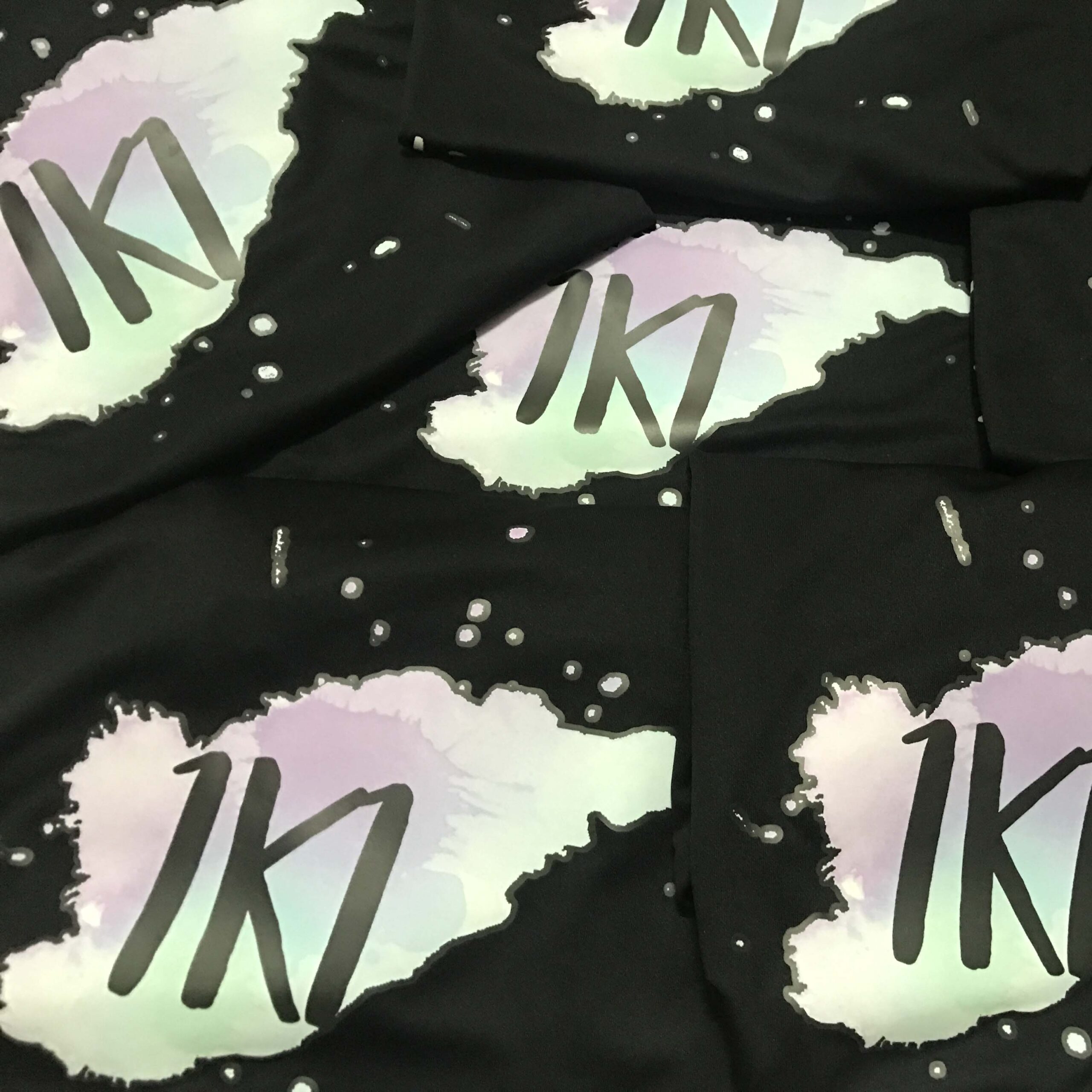
Example of Digital Heat Transfer Printing
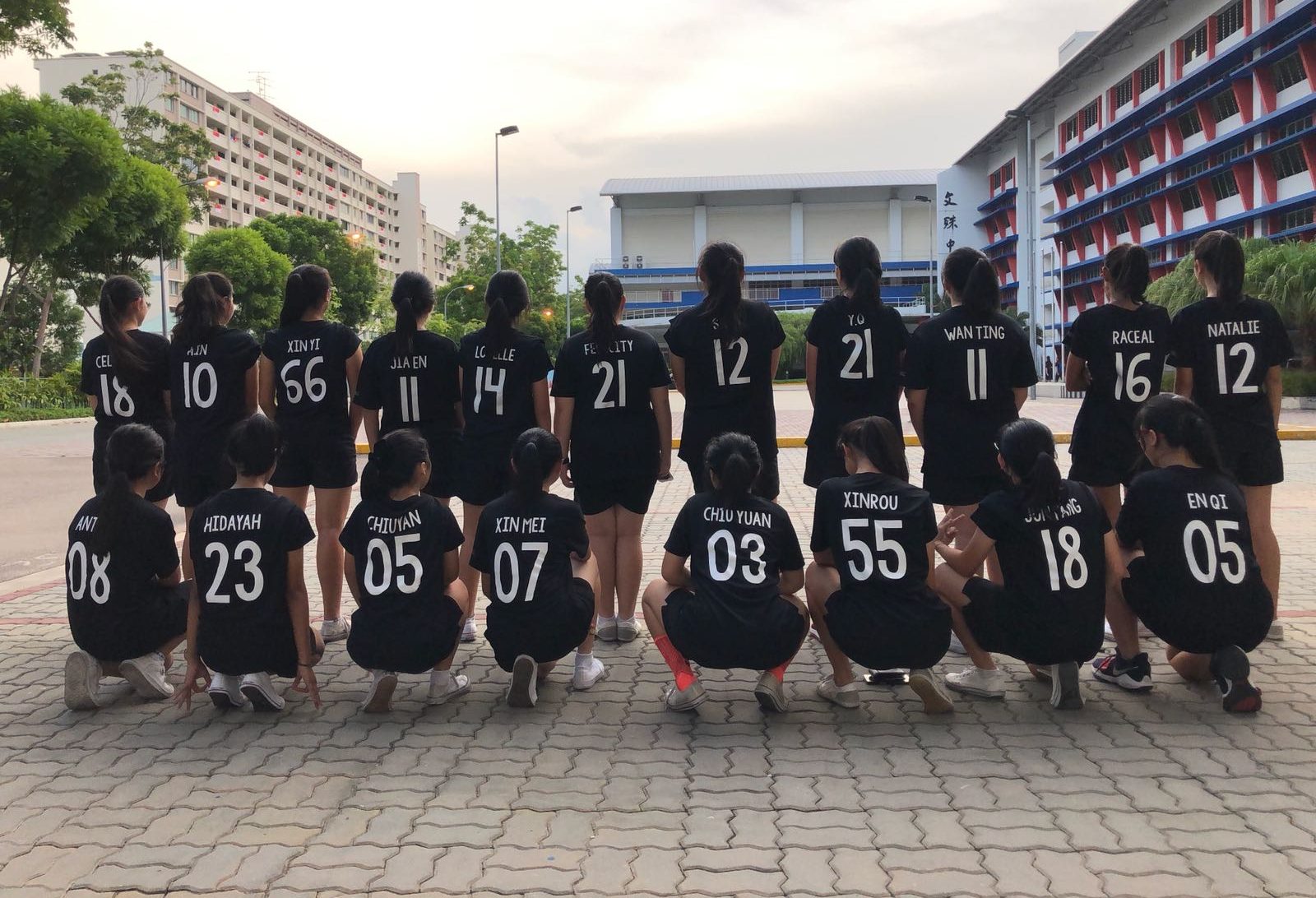
Example of Vinyl Heat Transfer Custom Names & Numbers Printing
Best T-Shirt Material for Long-Lasting Prints
Choosing the right fabric is just as important as selecting the best printing method. Here’s a breakdown of common materials and their compatibility with different printing techniques.
1. Cotton : Soft & Comfortable
👍Best for: Everyday wear, casual T-shirts, Corporate events and promotional giveaways.
✅Best printing methods: Silkscreen printing, Embroidery and DTF printing.
🤔Why? Cotton absorbs silkscreen ink well, making it great for bold, long-lasting prints. However, it may shrink slightly over time.
TJG Print offers a variety of cotton t-shirts and cotton polos.
2. Polyester (Dri Fit Material) : Lightweight & Quick Drying
👍Best for: Sports Jerseys, active-wear, School events (CCA and Class T-Shirts), outdoor events.
✅Best printing methods: Sublimation, Silkscreen printing.
🤔Why? Sublimation bonds directly with polyester fibers, making it the most durable option for full-color prints.
Some of the most popular T-shirts include Dri Fit Eyelet , UDF01 anti-odor T-shirt, and Dri Fit Polo series.
3. Cotton-Polyester Blend : The Best of Both Worlds
👍Best for: Corporate uniforms, branded workwear, stylish t-shirts.
✅Best printing methods: Silkscreen printing, embroidery.
🤔Why? Cotton blends combine the softness of cotton with the durability of polyester, making them a versatile choice for various applications.
TJG Print offers various blends of polo that are great for Singapore’s weather.
How to Make Your T-shirt Prints Last Longer
We come across many customer’s question regarding “why my T-shirt printing are cracking and peeling?” and it can be down to a few simple reasons. At times, vendors may offer cheap pricing as their quality of prints are not great or they are trying to clear their old printing materials. With poor quality print material, the prints are more susceptible to peeling and cracking as the lifespan is shorter.
While some printing methods do have lifespan, with proper care and maintenance, the durability can be prolong.
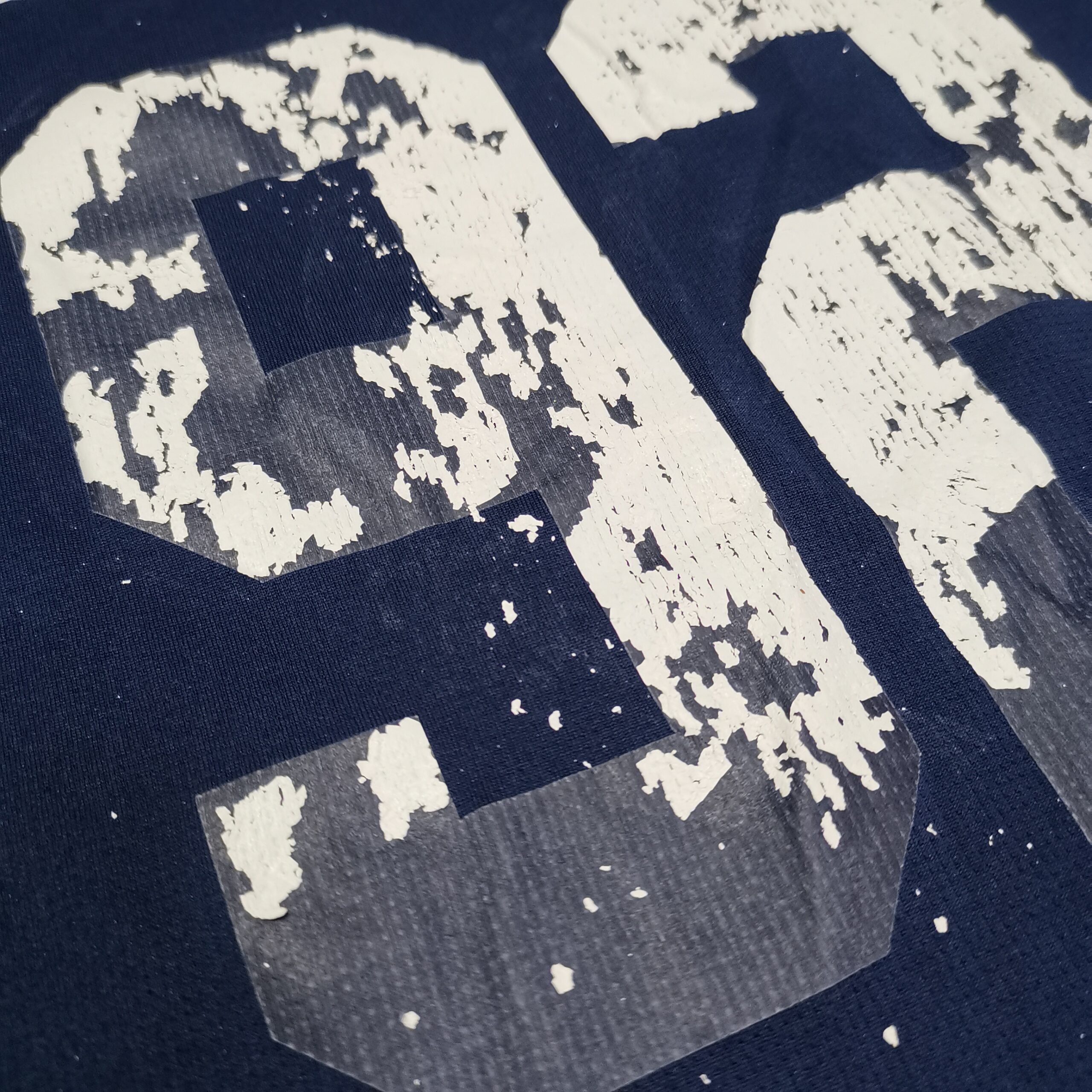
Example of Prints that are peeling
Proper care can significantly extend the life of your printed shirts. In general, you can follow these tips and refer to the table for more care and maintenance instructions to keep your designs looking new:
Wash inside out – Reduces friction and prevents fading.
Use cold water – Hot water can weaken prints over time.
Avoid harsh detergents – Choose mild detergents to protect the prints.
Do not iron directly on the design – Heat can damage printed graphics.
Air dry when possible – High heat from dryers can cause prints to crack.
|
Printing Method |
Washing Instructions |
Drying & Care Tips |
|
Embroidery |
Use cold water, delicate wash cycle |
Do not rub embroidery or iron on the embroidery. Air dry recommended |
|
Silkscreen Printing |
Wash at low temperature, turn inside out |
Do not iron directly over print and avoid tumble drying |
|
Direct-To-Film (DTF) |
Use cold water, wash inside out |
Air dry preferred, avoid high heat |
|
Vinyl & Digital Heat Transfer |
Wash in cold water with mild detergent, no softeners |
Avoid heating and do not stretch the print |
|
Sublimation Printing |
Wash in cold or warm water, turn inside out |
Air dry or low heat drying |
Which T-Shirt Printing Method Is Best for You?
Ultimately, the best printing method depends on your needs. At TJG Print, we will listen to your T-shirt printing needs and we will advise the best possible print methods.
Here are some quick examples as reference only:
For corporate wear & uniforms -> Embroidery or silkscreen printing
For vibrant sportswear -> Sublimation Printing
For high-quality and long lasting prints -> Embroidery or Silkscreen printing
For budget-friendly bulk orders -> Silkscreen printing
For intricate designs & small orders -> DTF
For custom names & numbers -> DTF or Vinyl printing
If you’re still unsure, don’t worry! Our team is here to help you choose the right fabric and printing technique for your project.
Final Thoughts
When it comes to durability, embroidery and sublimation are the longest-lasting methods, followed closely by silkscreen printing and DTF printing. If you’re looking for a cost effective solution for bulk orders, silkscreen printing is your best bet. However, if you want vibrant, detailed prints, DTF and sublimation are excellent choices.
No matter which method you choose, proper care will ensure your prints stay vibrant for years.
Need help with a custom t-shirt? WhatsApp us to enquire with us today!
